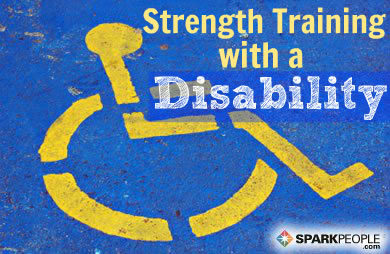|
There are a lot of important pieces in the weight loss puzzle. Good tools for tracking nutrition and exercise, reliable information, social support to boost motivation and help you stay focused--all of these things are crucial. But even with all this, success still comes down to how well you can help yourself make good choices in the moments when those choices actually need to be made. All of us have to cope with feelings, thoughts, impulses, and situations that can make it very hard to stay mindful, motivated, and disciplined when it’s time to actually decide what we’re going to eat and whether we’re going to get up and do some exercise. Learning how to effectively coach yourself through these challenges is crucial if you want to keep moving forward. And the first step here is paying careful attention to how you talk to yourself when things go well, and when they don’t. For me, negative self-talk has always been the biggest obstacle to doing what I need to do. In the past, I started all my weight loss campaigns with extremely negative feelings toward myself, like feeling disgusted every time I saw myself in a mirror or photo, and assuming others felt the same way about me. I told myself that losing weight was the key to being happy. Every time I gave in to some impulse or bad mood, I mercilessly beat myself up for not having the character or willpower to say no to a candy bar or second helping of dinner; I never gave myself any credit when I did well. I can tell you now that this “tougher than toughlove” kind of negativity is a prescription for failure. Even if feeling bad about myself motivated me to try to make some changes, it was never enough to keep me going for very long. Mainly, it just increased my feelings of resentment, frustration, and helplessness until they erupted in an eating binge or a collapse into depression and hopelessness. All that negative self-talk made it impossible for me to come up with any realistic goals and strategies, or figure out how to help myself do what I wanted to do. I was stuck for years in an all-or-nothing mentality where I had to be perfectly good or I felt perfectly bad. But I’ve also learned that I can’t just switch my self-talk to the other extreme, where it’s full of sweetness and abstract fluff about how wonderful I am and how I can accomplish anything I want as long as I believe I can. That may help turn off some of the negative self-talk for a few minutes, but that’s just the beginning. What I really need is the sort of non-sugarcoated but respectful “push” you get from a good coach: identifying both my strengths and my weaknesses, recognizing what needs work, setting realistic and meaningful goals, learning from my problems and my successes, and challenging me to put my best efforts forward. At this point, I’ve identified four principles of constructive self-talk that help me avoid falling back into the pit of negativity and verbal self-abuse: 1. Don’t say anything to myself I wouldn’t say to someone else. If I find myself slipping back into harsh self-criticism, perfectionism, or unrealistic expectations, I stop for a minute and ask myself whether what I’m saying to myself is something I’d say to anyone else who came to me looking for help with a similar situation. Then I say that to myself instead. 2. Look at the whole picture. No matter how persistent a problem seems to be, I remind myself it is never the whole story. There are times when I’ve handled the problem well and accomplished something positive. Instead of just going over what went wrong this time, I ask myself what I did to make things go right in those other instances, and how I can do that again now. 3. Ditch the drama. If I’m upset about something I ate or some exercise I didn’t do, I remind myself that, in the grand scheme of things, this just really doesn’t matter very much. I’m going to eat well more than 50,000,000 calories in my lifetime (that’s about 2000/day for 68 years), so how much does it really matter whether a few hundred of them got eaten a few hours earlier than scheduled? Is it going to ruin my life if it takes me a few days longer to reach my weight or fitness goal? Really, it’s blowing the small stuff way out of proportion that causes the real problems, isn’t it? 4. Reward myself for positive thinking. Meaningful rewards are powerful motivators. But how often do we reward ourselves for taking the time to really think things through in order to get past unhelpful reactions, assumptions, and negative self-talk? I used to reward myself when the scale showed me a number I liked, but that never helped me stay motivated when the scale wasn't being cooperative. Now I do it when I stop a negative rant in its tracks or manage to follow the principles above when I need them. Once you've found your own way to stop the negative self-talk, then you'll be free to give yourself the kind of authentic toughlove that can really get and keep you moving towards success. How are you at coaching yourself? Do you have any secrets or suggestions that have worked for you? |
More From SparkPeople
|

.jpg)


.jpg)














